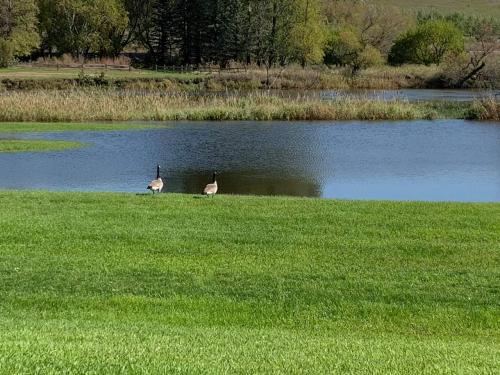How To Care For Your Lake

Lakes and
reservoirs cover almost 40 million acres in the U.S. Typically, lakes have a
surface that is greater than 10 acres. Lakes are usually natural, whereas ponds
are typically man-made. For the most part, lakes are deeper than ponds,
therefore, they have a significant difference in temperature from the surface
to the bottom of the lake, and some lakes are big enough to impact local
climate conditions.
Lakes suffer
from the same problems as ponds such as sedimentation, pollution, or intruding
species, and these can by magnifies by surrounding residential, recreational,
and agricultural land use. For example, motorboats can disturb wildlife and
wakes from boats can cause erosion in popular recreational areas. Lakeside
homes, resorts, docks, marinas, and roads all are hard on the ecosystem.
Wastewater pollution, and the runoff from driveways or yards are common issues.
There are
many ways that you can limit your impact on a lake, and here are just a few:
-
Avoid
making changes to the waterfront on your property that could potentially harm
fragile aquatic wildlife habitats. These changes include building a permanent dock or a
beach area.
-
Try
to see your yard as an extension of the lake, limiting the amount of turf, and
the use of herbicides, pesticides and fertilizers.
-
Perform
regular maintenance on your septic tank, and avoid adding harmful chemicals
down the drain, which will minimize groundwater pollution.
-
Replace
your yard with impervious surfaces with greener alternatives to reduce runoff
from your yard.
Lake management laws, permits and
regulations: Most
States have developed shoreline management laws that protect lakes and
surrounding watershed. Just an example, Washington State’s Shoreline Management
Act, which applies to marine waters, lakes, rivers, streams, shore lands and
associated wetlands, covers environmental protection, shoreline use and public
access. Each community’s specific needs have shoreline master programs
administers at the city and county levels. Prior to doing any water-related
work on your property, check with your state’s natural resources department and
your city or county’s zoning and planning authority. You will need to become
familiar with the local regulations and may need to obtain a permit. Also, lake
management and restoration grants are available sometimes for landowners and
lake conservation groups.
Post Your Ad Here
Comments